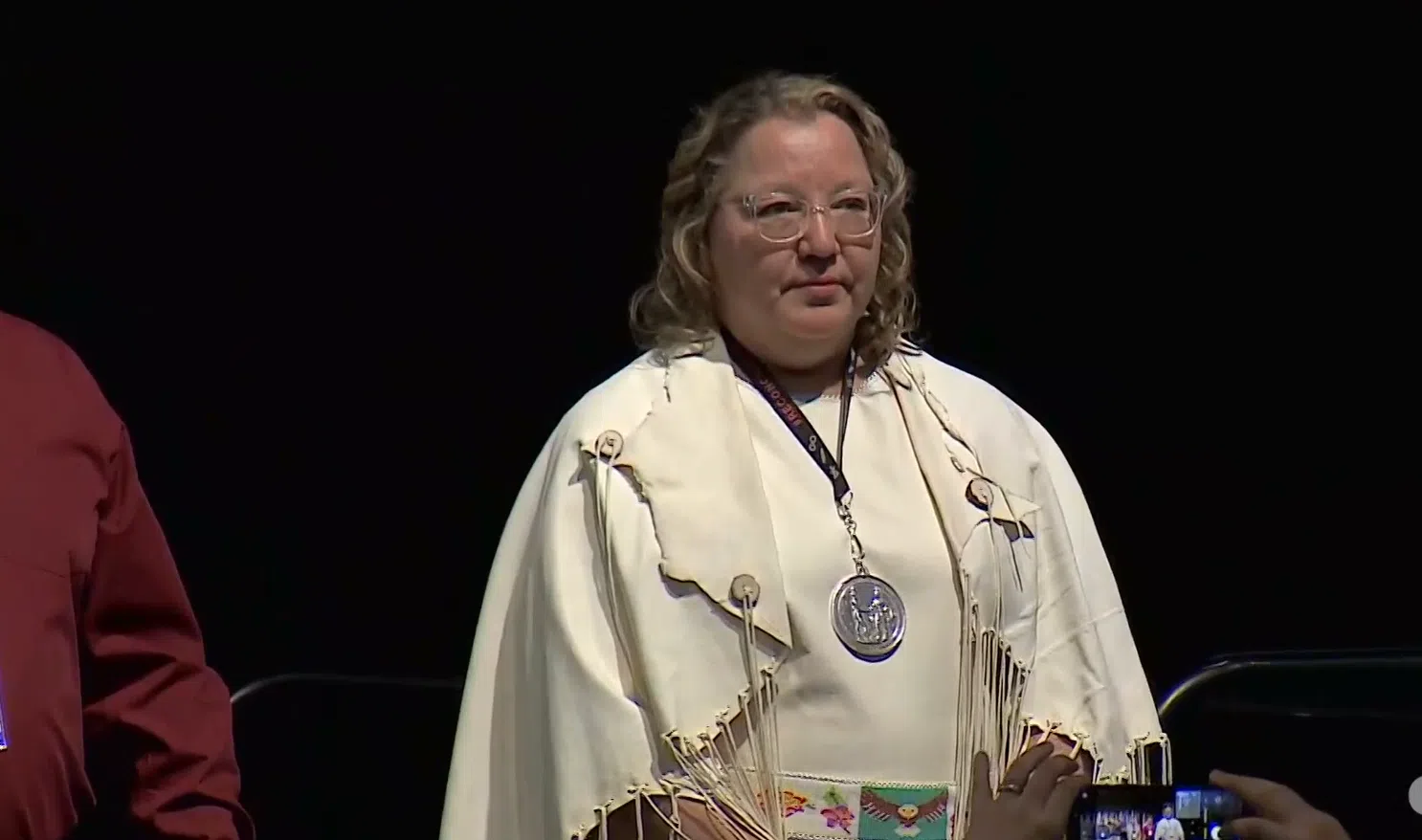Cindy Woodhouse, the newly elected national chief of the Assembly of First Nations (AFN), has a lot of work to do as she sets out to unify the fractured organization and rebuild its legitimacy in the eyes of First Nations across Canada.
To begin, the new national chief should forge her own independent path. Instead of immediately prioritizing internal reforms, she could facilitate reconciliation within First Nation communities by showing leadership in addressing ongoing, challenging conversations that remain unresolved in First Nation communities right now.
Although engaging in these discussions will subject her to criticism, leading from the top on difficult topics will often do that.
The first topic of conversation is the matter of unmarked graves near residential schools.
In 2021, the Tk’emlups te Secwepemc Indigenous community in British Columbia made headlines by announcing the discovery of 215 unmarked graves, believed to belong to children, through ground-penetrating radar. The allegation sent shockwaves across Canada and around the world. Mainstream media extensively covered these allegations, creating impressions of mass murder of children and human rights atrocities.
In reaction to these allegations, churches, especially Roman Catholic ones, became targets of vandalism and arson. Some individuals on reserves expressed their anger by targeting churches within their communities. Records indicate that there were over 60 incidents involving churches in 2021 alone.
Regrettably, churches affiliated with First Nation communities are still reporting attacks on their properties. At last count, some alternative media outlets are reporting a total of 100 incidents of arson and vandalism on churches. Just recently, video footage revealed an attempted arson on a Roman Catholic church in Regina, which only conservative outlets seemed to cover.
The CBC – three years late to the issue – ran an investigative story on the incidents that only seemed to serve as a platform for anti-Christian bigotry and to provide justification for the indefensible actions.
At the time, National Chief Perry Bellegarde – to his credit – condemned these acts and called for an end to them. Other prominent Indigenous voices also spoke up.
However, it’s crucial to admit that these claims of unmarked graves remain unverified and lack concrete evidence. Without excavation or exhumed bodies, it’s impossible to conclusively determine whether these are indeed human remains.
Indigenous communities in Canada must openly express this sentiment, and the national chief of the AFN is a prominent voice to convey this message.
No one denies that children died at these institutions. Tuberculosis took the lives of thousands of indigenous children who attended residential schools, day schools, or no school at all. It was a major killer of Indigenous people at the time.
However, this issue is an open and festering wound, particularly for many Indigenous communities. It is also a stain on Canadians and our collective history. Even today, Christian places of worship within Indigenous communities are subjected to reprehensible attacks.
Woodhouse must lead the AFN in addressing this difficult discussion by stating the truth. There is no evidence to substantiate the allegations of widespread child murder, and it’s time for Indigenous communities to acknowledge this and focus on healing their communities.
Conservative Leader Pierre Poilievre has stated that Parliament should launch a comprehensive investigation into the allegations of unmarked graves at the Kamloops Indian Residential School. Woodhouse should support his initiative and ensure the co-operation of all political parties. This would provide closure to many Indigenous families.
At times, we lose sight of the fact that not discovering bodies would be a profoundly positive outcome for First Nations and for Canada. This could help reconciliation efforts and bring peace to First Nation communities, particularly for Indigenous individuals of Christian faith.
No First Nation leader should want this festering wound to remain exposed.
Thankfully, the next conversation Woodhouse must address is not as difficult as the first.
As the debate rages over the carbon tax across Canada, it’s often overlooked that these taxes deeply impact First Nations. The federal government’s centralized energy policies are harming Indigenous communities. Imposing ‘clean energy’ mandates on many First Nations people who rely heavily on diesel and lack alternative options is simply not feasible for many communities. Woodhouse has said she will support a review of the impacts of the carbon tax on First Nations, but she must do more and vehemently oppose the government’s whole green agenda.
She must lead the AFN in rejecting all unnecessary and arbitrary Net Zero and clean energy targets. The government’s ‘Just Transition’ strategy – leaving resources untapped – is a direct threat to energy-producing First Nations. First Nations should have the opportunity to thrive in the energy sector just like any other community.
Both these conversations will be divisive and polarizing, but the AFN must lead them because the lack of resolution is harming Indigenous communities.
Joseph Quesnel, who is a Senior Research Fellow with the Frontier Centre for Public Policy.



